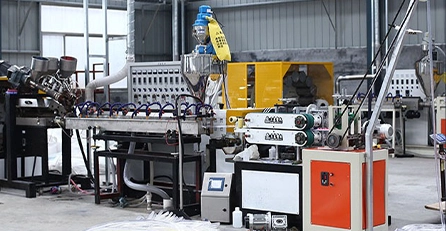vacuum pipes
Understanding Vacuum Pipes An Essential Component in Various Industries
Vacuum pipes are specialized tubes used to transport materials and fluids in environments where low pressure and vacuum conditions are required. These pipes play a crucial role in a variety of applications across multiple industries, including food processing, pharmaceuticals, chemical manufacturing, and environmental systems. This article delves into the significance of vacuum pipes, their functionalities, and their diverse applications.
What are Vacuum Pipes?
Vacuum pipes, often made from materials such as stainless steel, glass, or high-density plastics, are designed to withstand the pressure differentials that occur during the vacuum process. The primary purpose of these pipes is to create a controlled environment that minimizes the presence of air and other gases. This is particularly important in processes where the presence of air can lead to contamination or chemical reactions that could degrade the quality of the product.
How Do Vacuum Pipes Work?
The functioning of vacuum pipes is rooted in the principles of vacuum technology. A vacuum is created when air and other gases are removed from a specific space, leading to a drop in pressure. Vacuum pipes are connected to vacuum pumps that facilitate this removal of air. The pipes are engineered to handle the resulting pressure changes, ensuring a secure and continuous flow of materials. Additionally, proper sealing and joint fittings are vital to maintaining the vacuum conditions, preventing any leakage that could compromise the system's efficiency.
Applications of Vacuum Pipes
1. Food Processing In the food industry, vacuum pipes are utilized in processes like vacuum packaging, where products are sealed in airtight bags to extend their shelf life. The removal of air slows down oxidation and microbial growth, preserving the flavor and nutritional value of food items.
vacuum pipes

2. Pharmaceutical Industry Vacuum pipes are integral to the production of pharmaceuticals, where sterile environments are paramount. These pipes help transport powders and liquids in a contamination-free manner, ensuring the integrity of the drugs produced.
3. Chemical Manufacturing In the chemical industry, vacuum pipes facilitate reactions that need to occur in a low-pressure environment. These conditions help control the rate of reactions and prevent unwanted byproducts, thus improving yield and safety.
4. Environmental Systems Vacuum pipes are also significant in environmental applications. For instance, they are used in systems designed to extract volatile organic compounds (VOCs) from groundwater or soil. The vacuum helps in the efficient removal and treatment of pollutants, contributing to environmental protection efforts.
5. Industrial Vacuum Systems In various industries, vacuum pipes are employed in systems designed for material handling and processing. These systems use vacuum technology to move materials such as granules, powders, and even liquids through the production line seamlessly.
Challenges and Considerations
While the advantages of vacuum pipes are numerous, there are challenges associated with their use. Proper maintenance is essential to prevent wear and damage caused by pressure fluctuations and the materials being transported. Additionally, selecting the appropriate material for the vacuum pipe based on the specific application is crucial to ensure durability and compatibility with the substances being handled.
Conclusion
In conclusion, vacuum pipes are vital components that support a wide range of industrial processes. Their ability to create and maintain vacuum conditions is essential for ensuring the quality of products, enhancing safety, and minimizing contamination. As industries continue to evolve, the demand for efficient vacuum systems will likely grow, underscoring the importance of vacuum pipes in modern manufacturing and processing environments. Understanding their role and functionality can help industries optimize their processes and maintain high standards of quality and safety.
-
Top Quality Oxy Acetylene Hoses for Sale Fit for Welding DemandsNewsJul.28,2025
-
The Future of Pneumatic Air Tubes in IndustryNewsJul.28,2025
-
Superior and Reliable LPG Hose Pipe Solutions for Every NeedNewsJul.28,2025
-
Exceptionally Durable and Versatile Premium Braided PVC TubingNewsJul.28,2025
-
Best Adapters for Connecting Garden Hose to PVC Pipe ConnectionsNewsJul.28,2025
-
The Essential Role of LPG Hoses in Safe and Efficient Gas DistributionNewsJul.16,2025














